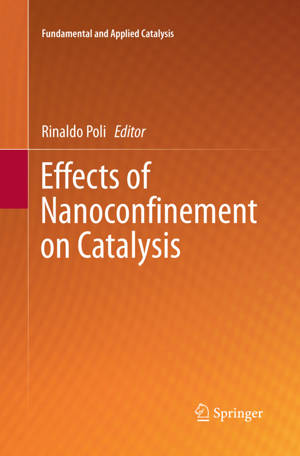
- Afhalen na 1 uur in een winkel met voorraad
- Gratis thuislevering in België vanaf € 30
- Ruim aanbod met 7 miljoen producten
- Afhalen na 1 uur in een winkel met voorraad
- Gratis thuislevering in België vanaf € 30
- Ruim aanbod met 7 miljoen producten
Zoeken
Effects of Nanoconfinement on Catalysis
€ 158,45
+ 316 punten
Omschrijving
This book highlights the recent advances and state of the art in the use of functionalized nanostructured environments on catalysis. Nanoconfinements considered include well-defined molecular cages, imprinted self-assembled supramolecules, polymers made by living or controlled polymerization, metallorganic frameworks, carbon nanotubes, mesoporous inorganic solids, and hybrids thereof. Advantages of nanoconfinement of catalysts discussed include higher activities, improved selectivities, catalyst stabilization, cooperativity effects, simplified protocols for cascade syntheses, better catalyst recovery, and recyclability. The multiple applications that these materials offer are revolutionizing industrial sectors such as energy, electronics, sensors, biomedicine, and separation technology.
Specificaties
Betrokkenen
- Uitgeverij:
Inhoud
- Aantal bladzijden:
- 266
- Taal:
- Engels
- Reeks:
Eigenschappen
- Productcode (EAN):
- 9783319843452
- Verschijningsdatum:
- 13/07/2018
- Uitvoering:
- Paperback
- Formaat:
- Trade paperback (VS)
- Afmetingen:
- 156 mm x 234 mm
- Gewicht:
- 390 g

Alleen bij Standaard Boekhandel
+ 316 punten op je klantenkaart van Standaard Boekhandel
Beoordelingen
We publiceren alleen reviews die voldoen aan de voorwaarden voor reviews. Bekijk onze voorwaarden voor reviews.










